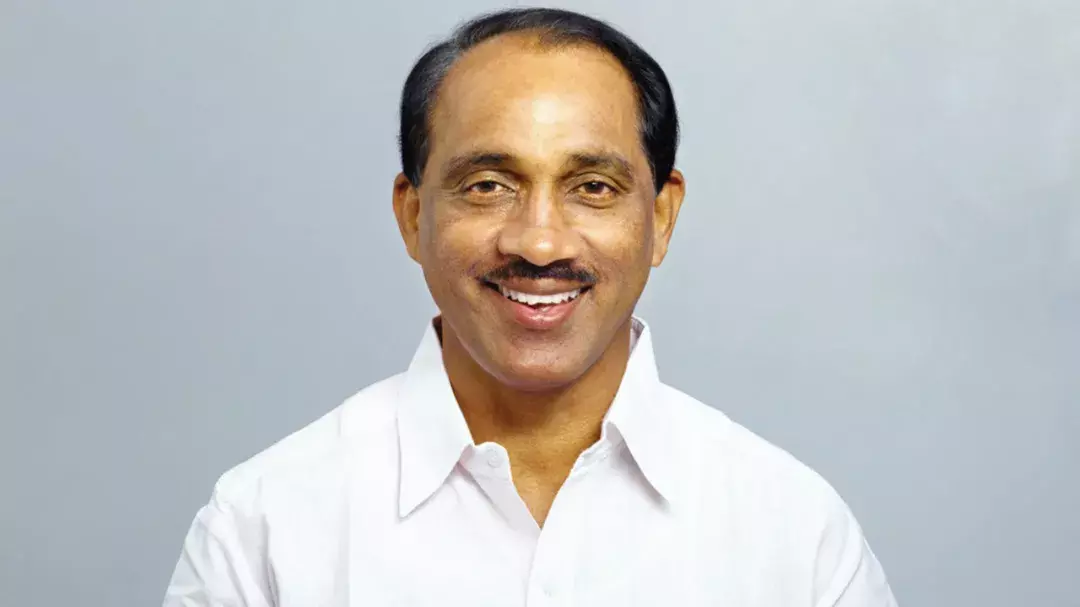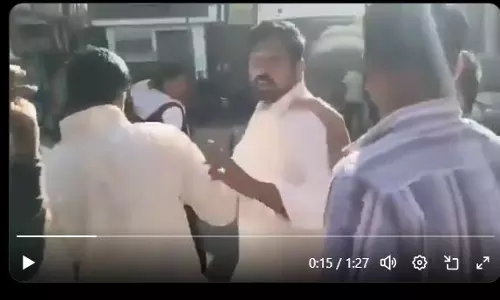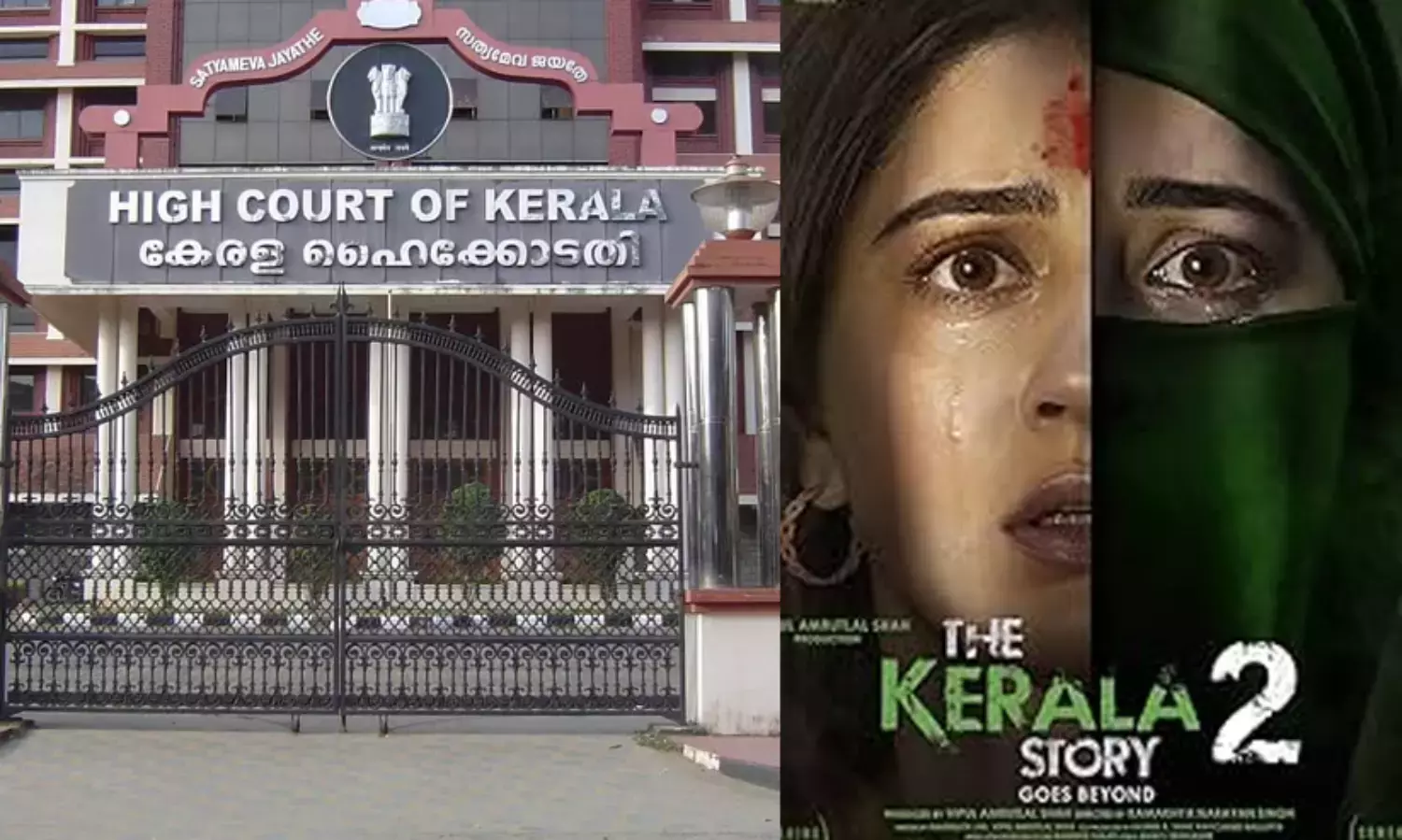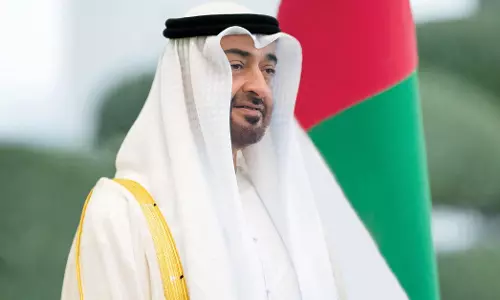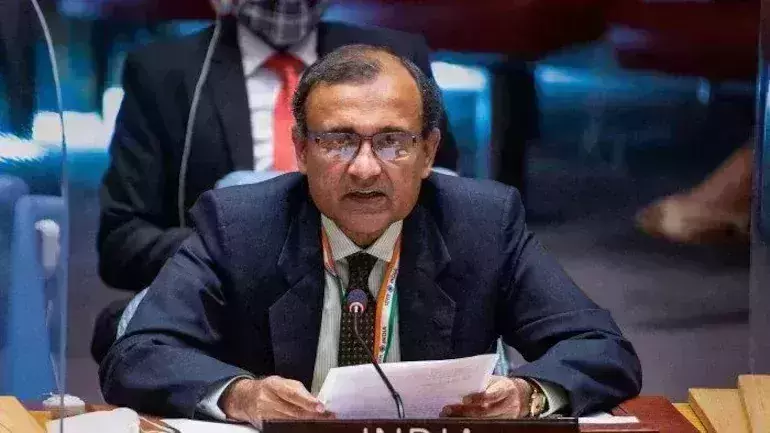
Break apart political, radical ideologies: India at UN
text_fieldsIndia’s Permanent Representative to the UN Ambassador T S Tirumurti (Photo Credit: PTI)
Indian Permanent Representative to the UN Ambassador TS Tirumurti spoke at the annual briefing to member states organized by the United Nations Office of Counter-Terrorism (UNOCT). He said India has always insisted nations should not go back to pre-9/11 era when terrorists were divided into 'your terrorist' and 'my terrorist'.
In a statement, India emphasized the need to distinguish between political ideologies that are part of a pluralistic democratic polity and the radical ideologies that support terrorism, emphasizing that such a classification is "inaccurate" and "counterproductive".
According to him, categorizing them weakens the collective resolve to fight terrorism.
"We see a renewal of this attempt by trying to divide terror again into categories and label them. For example, under the label of xenophobia, racism, and other forms of intolerance or in the name of religion or belief, efforts have been made to bring into this discussion categories such as right-wing extremism, far right and far left extremism, violent nationalism, racially ethnically motivated violent nationalism," Tirumurti said.
In democracies, Tirumurti said there is a need to realize that both right-wing and left-wing parties are part of the polity and come to power through elections reflecting the will of the people.
"Democracy by definition contains a broad spectrum of ideologies and beliefs. We need to distinguish between the political ideologies which are part of a pluralistic democratic polity, as against radical ideologies which subscribe to terrorism. Our fight is against such radical ideologies and not against democracy. To paint them with the same brush is inaccurate and counterproductive," he added.
In preparation for a report mandated by the General Assembly on terrorist acts perpetrated in the name of religion or belief, or on the basis of xenophobia, racism, and other forms of intolerance, the Secretary-General reiterated that "we should not be selective in our approach but in fact seek to implement a zero-tolerance against terror."
The threat of terrorism has only increased, said Tirumurti, who is currently the Chair of the 1988 Sanctions Committee and of the Counter-terrorism Committee of the Security Council.
"The threat posed by al-Qaeda, ISIL and their affiliates in Asia as well as in Africa, and their links with those designated under 1267 need to be recognised and addressed," Tirumurti stated.
According to him, the recent report of the 1988 Taliban Sanctions Committee noted the Taliban's close links to al-Qaeda and other terrorist groups, especially through the Haqqani network. "We need to ensure that radical groups in one region do not draw sustenance from another," he said.
The Counter-Terrorism Committee (CTC) and United Nations Office of Counter-Terrorism (UNOCT), which both have complementary roles, will benefit from greater synergies, Tirumurti said.
In addition, he referred to the adoption of the 7th review resolution of the GCTS (Global Counter Terrorism Strategy) in June of last year, which reaffirmed that any act of terrorism cannot be excused or justified regardless of the motives of terrorists as outlined in relevant UN Security Council resolution.
It is important that the UN's response to terrorism remains united, unambiguous, and unequivocal, he added. The review also rejected the divisive efforts of some member states seeking labeling terrorism based on motivations, specifically political and other ideologies.
Additionally, Tirumurti emphasized the importance of maintaining the integrity of GCTS and preventing attempts to undermine this hard-earned consensus.
Furthermore, he expressed concern over the "real emerging threat" posed by terrorists' use of ICT, such as social media, new payment methods, video games, encrypted messaging services, cryptocurrencies and drones, for which most members of the UN lack appropriate response capabilities.
"Countering terrorist narratives, particularly through internet and other online means, have remained a challenge. Enhanced online presence of young people during pandemic has exposed them to exploitation by a terrorist group through hate speech and recruitment. Let us not forget that the greatest violators of human rights are the terrorists," he said.




